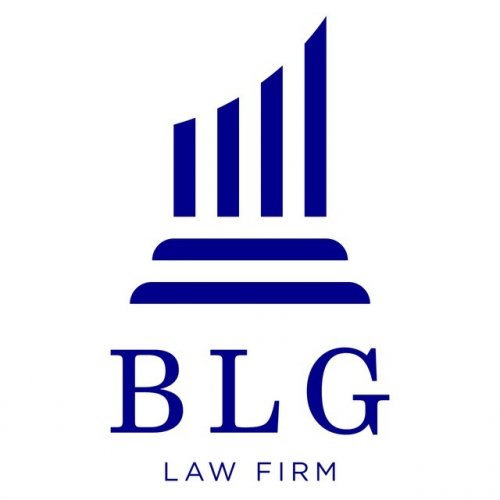Best Restructuring & Insolvency Lawyers in Uzbekistan
Share your needs with us, get contacted by law firms.
Free. Takes 2 min.
Or refine your search by selecting a city:
List of the best lawyers in Uzbekistan
About Restructuring & Insolvency Law in Uzbekistan
Restructuring and insolvency law in Uzbekistan provides a formal framework for managing the financial difficulties faced by individuals and businesses. These legal processes are designed to help restructure debts, enable companies to continue operations where possible, or efficiently wind up and liquidate assets when financial recovery is not feasible. The legislation aims to protect the interests of both debtors and creditors, ensuring that financial distress is addressed in an orderly manner under the supervision of the courts and regulatory bodies.
Why You May Need a Lawyer
Legal help is often essential when dealing with restructuring and insolvency situations in Uzbekistan. Some common scenarios where professional guidance is beneficial include:
- Your company is unable to pay its debts as they fall due.
- You are facing creditor actions such as lawsuits or asset seizures.
- You want to negotiate new terms with creditors or restructure existing debts.
- You are considering bankruptcy and need to understand your options and obligations.
- A customer, supplier, or debtor has declared insolvency or entered into restructuring proceedings, affecting your business interests.
- You are a creditor seeking to recover debts through insolvency proceedings.
Navigating these processes without expert legal support can result in missed opportunities, exposure to liability, or loss of assets. Lawyers specializing in this field offer valuable advice on compliance, representation in court, and negotiation with creditors or debtors.
Local Laws Overview
The primary legal framework governing restructuring and insolvency in Uzbekistan is found in the Law on Bankruptcy, the Civil Code, and related government regulations. Key aspects of the local regime include:
- Initiation of Bankruptcy: Bankruptcy proceedings may begin when a debtor fails to pay debts within a legally defined period. Both debtors and creditors may file for bankruptcy in court.
- Restructuring Options: The law allows debtors to propose restructuring plans to creditors, enabling companies to reorganize finances and business operations to avoid liquidation.
- Role of Trustees: Insolvency trustees or administrators are appointed by the court to oversee asset management, ensure fair treatment of creditors, and supervise proceedings.
- Powers of the Court: Courts have broad authority to approve restructuring plans, liquidate debtor assets, distribute proceeds to creditors, and resolve disputes.
- Protection Measures: During proceedings, certain creditor actions such as asset seizures or lawsuits may be suspended to facilitate orderly resolution.
- Priority of Claims: Local law sets strict rules for the priority of creditor claims in liquidation, with secured creditors, employees, and tax authorities often having preferential treatment.
Frequently Asked Questions
What qualifies as a basis for bankruptcy in Uzbekistan?
Bankruptcy can be declared if a debtor is unable to pay debts for a specified period, typically three months or more, or if outstanding debts exceed the value of the debtor's assets.
Who can initiate insolvency or restructuring proceedings?
Both debtors and creditors may file for bankruptcy or propose restructuring under Uzbek law. In corporate cases, company management typically initiates voluntary restructuring. Creditors may ask the court to start insolvency if debts are unpaid.
What debts cannot be discharged in bankruptcy?
Certain debts, such as child support, tax obligations, or criminal penalties, are not discharged in bankruptcy proceedings and must still be paid.
What is the function of a court-appointed trustee?
A trustee manages the debtor's assets, ensures compliance with legal requirements, represents the estate in negotiations, and oversees the distribution of assets to creditors.
Are there alternatives to formal insolvency proceedings?
Yes, debtors can seek informal workouts with creditors, restructuring agreements, or settlements. However, formal court protection may be necessary in complex cases or where creditor action cannot be stopped otherwise.
How are creditors ranked in insolvency?
Claims are paid according to legal priority: secured creditors and employees are paid first, followed by tax authorities and then unsecured creditors. Shareholders are only paid if surplus assets remain.
Can a business continue operating during insolvency?
In some cases, businesses may continue to operate under the supervision of a trustee or court and pursue restructuring plans. The aim is to preserve value and possibly return to profitability.
What is the typical duration of bankruptcy proceedings?
The time frame varies depending on complexity, but proceedings can last from several months to several years, especially if disputes arise or assets need to be sold.
What are the consequences for management of an insolvent company?
Management must act in good faith and comply with legal requirements. Misconduct, fraud, or failure to properly file for bankruptcy can result in civil or criminal liability.
Can foreign creditors participate in Uzbekistan insolvency cases?
Yes, foreign creditors have the right to file claims in Uzbek insolvency proceedings and are generally treated similarly to domestic creditors, subject to certain limitations.
Additional Resources
Various resources and organizations in Uzbekistan can assist individuals and businesses facing restructuring or insolvency issues:
- Economic Courts of Uzbekistan: Responsible for adjudicating bankruptcy and restructuring cases.
- State Committee of the Republic of Uzbekistan on Statistics: Publishes reports on insolvency trends and national economic conditions.
- Chambers of Commerce and Industry: Provides guidance and mediation services to businesses in financial distress.
- Uzbekistan Bar Association: Offers directories for finding licensed restructuring and insolvency lawyers.
- Ministry of Justice of Uzbekistan: Oversees regulatory compliance and maintains resources on legal rights and obligations.
Next Steps
If you are facing financial distress or require legal advice on restructuring and insolvency in Uzbekistan, consider the following steps:
- Gather all relevant documents, including financial statements, contracts, and creditor correspondence.
- Consult a lawyer specializing in restructuring and insolvency to review your situation and explain your options.
- Ask about alternatives to bankruptcy, such as debt restructuring or settlement agreements.
- If necessary, file the appropriate application with the court and cooperate fully with all legal proceedings.
- Maintain open communication with creditors and other stakeholders throughout the process.
Early intervention and professional legal advice are key to maximizing your chances of a successful outcome. Acting promptly can help protect your assets and manage legal risks during a challenging financial period.
Lawzana helps you find the best lawyers and law firms in Uzbekistan through a curated and pre-screened list of qualified legal professionals. Our platform offers rankings and detailed profiles of attorneys and law firms, allowing you to compare based on practice areas, including Restructuring & Insolvency, experience, and client feedback.
Each profile includes a description of the firm's areas of practice, client reviews, team members and partners, year of establishment, spoken languages, office locations, contact information, social media presence, and any published articles or resources. Most firms on our platform speak English and are experienced in both local and international legal matters.
Get a quote from top-rated law firms in Uzbekistan — quickly, securely, and without unnecessary hassle.
Disclaimer:
The information provided on this page is for general informational purposes only and does not constitute legal advice. While we strive to ensure the accuracy and relevance of the content, legal information may change over time, and interpretations of the law can vary. You should always consult with a qualified legal professional for advice specific to your situation.
We disclaim all liability for actions taken or not taken based on the content of this page. If you believe any information is incorrect or outdated, please contact us, and we will review and update it where appropriate.
Browse restructuring & insolvency law firms by city in Uzbekistan
Refine your search by selecting a city.

















